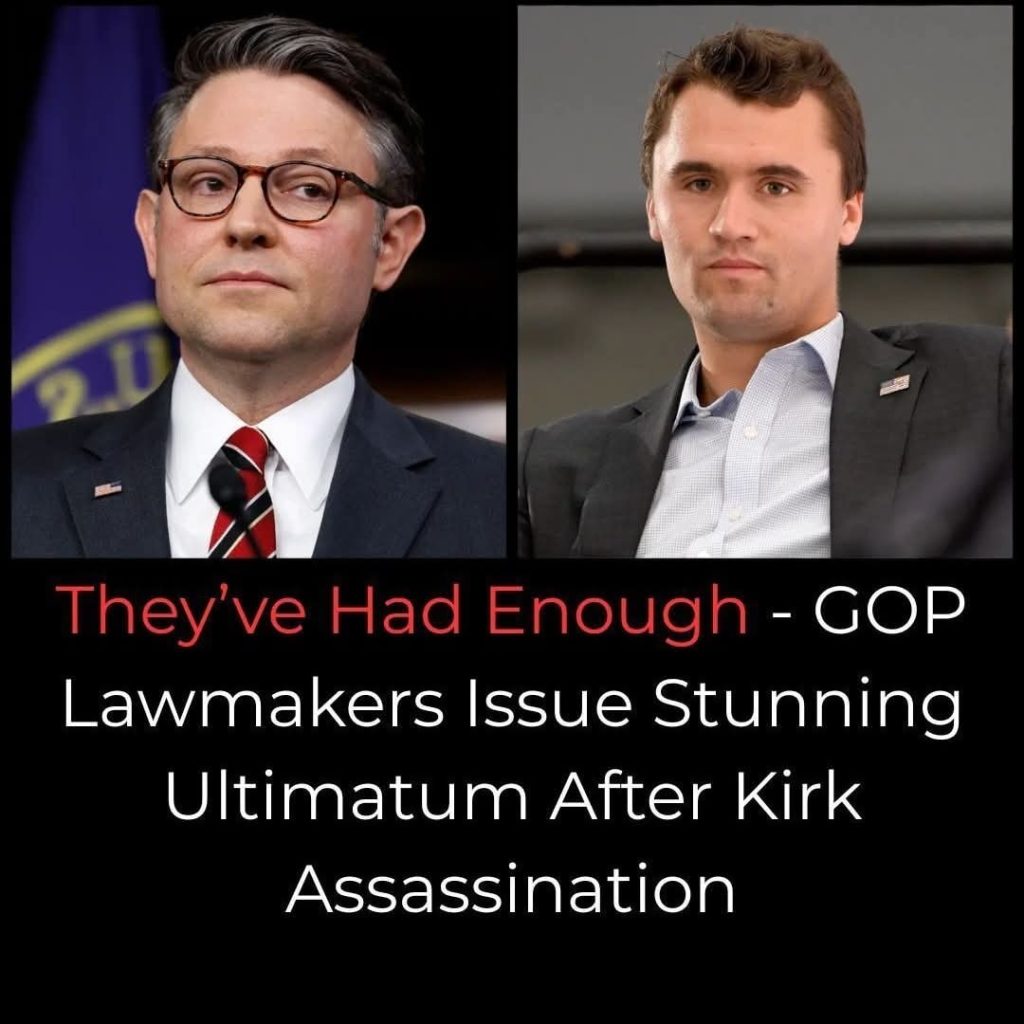GOP lawmakers seek a select committee to investigate left-wing networks as debate over political violence and unity intensifies following Kirk’s assassination.
In the wake of the shocking assassination of conservative activist Charlie Kirk at Utah Valley University on September 10, 2025, the political temperature in Washington has reached a boiling point. The day after the fatal shooting, a coalition of 23 House Republicans, led by Texas Representative Chip Roy, issued a forceful call for a congressional investigation into what they have dubbed the “radical left’s assault on America and the rule of law.” Their demand, articulated in a letter addressed to House Speaker Mike Johnson and the chairs of the Oversight and Judiciary Committees, has ignited a fierce debate over the roots and reality of political violence in the United States.
According to reporting from The Hill and Miami Herald, the letter—sent before Kirk’s suspected assassin was apprehended—insisted on the creation of a select committee with full subpoena powers. Its stated purpose? To “follow the money and uncover the force behind the NGOs, donors, media, public officials, and all entities driving this coordinated attack.” The signatories, a who’s who of the House Freedom Caucus, pointed to a “sustained breakdown of law and order, fueled not by chance, but by anti-American ideology.”
Their concerns weren’t limited to Kirk’s killing. The letter cited a pattern of violence against conservatives, referencing both the 2024 assassination attempt on former President Donald Trump and the 2017 shooting at a congressional baseball game. “Enough is enough. We must follow the money to identify the perpetrators of the coordinated anti-American assaults being carried out against us and take all steps under the law necessary to stop them,” the lawmakers wrote. In a particularly pointed passage, they accused “radical organizations” of funding campaigns for district attorneys and judges who “coordinate releasing criminals to the streets,” linking this to the high-profile case of Ukrainian refugee Iryna Zarutska, who was killed by a repeat offender earlier this year.
The letter didn’t stop at domestic actors. It named groups such as Antifa and donors like George Soros—longtime targets of conservative criticism—as among those to be scrutinized by the proposed committee. “We can no longer pretend to be bound together by shared ideals when a well-funded, vitriolic cadre of our fellow Americans and foreign interests are at war with the very values of faith in God, fidelity to our Constitution, and respect for the principles of liberty and Western Civilization that define us as Americans – including, notably, the free speech practiced and exemplified by Charlie Kirk,” the letter declared.
South Carolina Rep. Ralph Norman, one of the letter’s signers, told McClatchy News, “Political violence of any kind is unacceptable, no matter who commits it. But let’s not pretend this is an even playing field. In recent years, we’ve seen organized and well-funded efforts from the radical left to intimidate, disrupt, silence, and even justify violence against Americans they don’t agree with. Too often, the media downplays or excuses this violence when it comes from the left, as we’ve seen this week. That’s unfortunately the reality, and that’s where my concern lies.”
The call for investigations also echoed President Trump’s promise, made in the immediate aftermath of Kirk’s killing, to “find each and every one of those who contributed to this atrocity and to other political violence, including the organizations that fund it and support it.”
Yet, the push for a select committee has not gone unchallenged. The Southern Poverty Law Center (SPLC), which was referenced in the letter for having included Turning Point USA—the organization Kirk co-founded—on its hate map, defended its work in a public statement. “The data and analysis we provide have been used in courts, classrooms, and legislatures to protect civil rights and hold extremists accountable,” an SPLC spokesperson said. “We must have meaningful national conversation about violence and polarization in America. Blaming organizations that monitor extremism distracts from the urgent work of addressing the conditions that allow hate and violence to grow. SPLC remains committed to exposing extremism, equipping communities with knowledge, and defending the rights and safety of marginalized communities.”
Meanwhile, experts have pushed back against the narrative that political violence is the exclusive domain of one party or ideology. As reported by McClatchy News, data analysts and political scientists argue that violence in the U.S. is not monopolized by any single side. They point to numerous attacks targeting Democrats, including the 2025 assassination of Minnesota state lawmaker Melissa Hortman, the 2022 attack on Rep. Nancy Pelosi’s husband, and the 2020 plot to kidnap Michigan Governor Gretchen Whitmer.
Sean Westwood, a government professor at Dartmouth College and director of the Polarization Research Lab, told McClatchy News, “Searching for a single partisan motive among perpetrators of political violence is likely a fruitless exercise. The more salient common factors are social isolation, mental illness, and a deep-seated conviction that the political system itself is illegitimate.” Rachel Kleinfeld, a senior fellow at the Carnegie Endowment for International Peace, echoed this view: “While people like to view political violence as left or right, the reality is that it usually is perpetrated by people who are aggressive and are often mentally unbalanced, who draw from a wide range of conspiracy theories and beliefs.”
In the midst of mounting political rhetoric, calls for unity have emerged from both sides of the aisle. Democrats have denounced efforts to inflame division. Texas Rep. Lloyd Doggett stated, “Instead of lowering the temperature, Trump is spiking it. We should be united in rejecting violence, but this partisan, one-sided approach only adds fuel to the fire.” House Minority Leader Hakeem Jeffries added, “This moment requires leadership that brings the American people together, as opposed to trying to further divide us.”
Some Republican voices have also called for restraint. Former President George W. Bush posted on X, “Members of other political parties are not our enemies; they are our fellow citizens. May God bless Charlie Kirk and his family, and may God guide America toward civility.” Utah Governor Spencer Cox, speaking after the apprehension of suspect Tyler Robinson, urged, “At some point we have to find an off ramp, or else it’s going to get much worse.”
Kirk, aged 31, had risen to national prominence as the co-founder of Turning Point USA, a conservative youth group that played a significant role in campus politics and Republican activism. His “American Comeback Tour,” which was cut short by his death, aimed to mobilize young voters ahead of the 2026 midterm elections. The suspect in his killing, 22-year-old Tyler Robinson of Washington County, Utah, was apprehended on September 12, 2025, according to Miami Herald and The Hill.
As Washington reels from the latest act of political violence, the debate over its causes—and the best path forward—shows no sign of abating. With investigations looming and emotions running high, the nation faces a crossroads: whether to deepen partisan divides or seek common ground in the face of tragedy.


